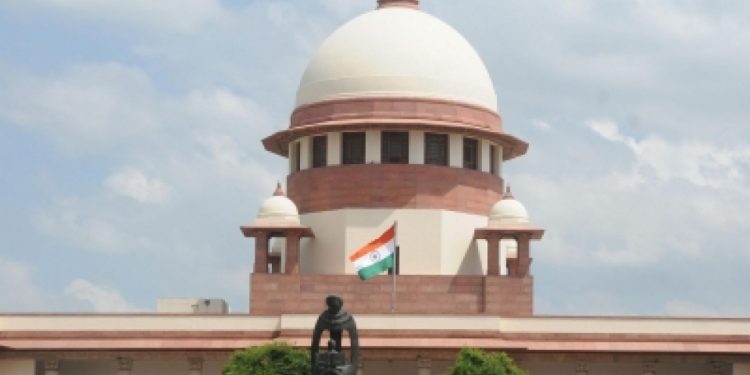New Delhi: The Supreme Court Wednesday told Justice Yashwant Varma that his conduct did not inspire confidence and also defended the CJI’s authority to act on any judicial misconduct, saying he cannot be merely a ‘post office’ but has certain duties to the nation.
It also asked Justice Varma, who is now a judge of the Allahabad High Court, why he chose to move the apex court after an in-house committee found him guilty of misconduct in the cash discovery row.
The top court was hearing Justice Varma’s plea seeking invalidation of a report by an in-house inquiry panel which found him guilty of misconduct in the cash discovery matter. The report indicted the judge over the discovery of a huge cache of burnt cash from his official residence during his tenure as a Delhi High Court judge.
The plea does not reveal Justice Varma’s identity and is titled, “XXX v. The Union of India”.
Posing sharp questions to the judge, the top court asked Justice Varma why he appeared before the in-house inquiry committee and did not challenge it then and there.
It told Justice Varma that he should have come earlier to the apex court against the panel’s report.
A bench of Justices Dipankar Datta and AG Masih said the in-house process was put in place in 1999 and the chief justice of India (CJI) cannot be considered merely a post office.
“The Chief Justice of India is not supposed to be a post office only. He has certain duties to the nation as the leader of the judiciary. If material comes to him regarding misconduct, he is only to inform the president and the prime minister. Nothing more.
“If on the basis of the material, it is found that misdemeanour is so serious calling for an action, he would be affirming earlier decisions of this court that CJI has the power to do so,” Justice Datta remarked orally.
The top court reserved its order on Justice Varma’s petition challenging the in-house inquiry procedure and the CJI’s recommendation for his removal.
As the hearing commenced, senior advocate Kapil Sibal, appearing for Justice Varma, referred to Articles 124 and 218 of the Constitution and said it lays down a complete procedure for the removal of a judge, and any parallel or extra-constitutional mechanism falls outside the framework of the Constitution.
Article 124 deals with the appointment and removal of Supreme Court judges, while Article 218 applies the same provisions to high court judges.
He said the removal of a judge is governed by the Judges (Inquiry) Act and an in-house inquiry cannot lead to a judge’s removal.
Sibal submitted that the in-house inquiry panel’s recommendation for his removal is unconstitutional.
He said the in-house inquiry is merely an administrative procedure and it lacks the safeguards of the ?Judges Inquiry Act, 1968?, such as strict standards of evidence or cross-examination of witnesses.
Stating that a recommendation for removal in this manner would set a dangerous precedent, Sibal said a recommendation for removal from the CJI “sounds the death knell” for a judge.
Countering Sibal’s argument, Justice Datta said three judgments have reaffirmed the in-house procedure after it came into force.
The in-house procedure has its origins in the judgments delivered by the Supreme Court, Justice Datta said.
When the bench asked what relief Justice Varma was seeking, Sibal replied that he wanted a declaration that the CJI’s recommendation for Justice Varma’s removal was “non-est” (“not existing”) and unconstitutional.
Justice Datta said that relief cannot stop the proceedings at this stage.
Sibal said when the CJI recommends the removal of a judge on the basis of an in-house procedure it holds great persuasive value.
“Since it comes from a high constitutional authority, which can influence the process in Parliament, by making such a recommendation, the CJI is interfering with the domain of Parliament.”
On the question of delay in approaching the top court, Sibal said a videotape was released on the SC website and the judge’s reputation was already damaged.
“What would I come to court for?” he said.
“The points you are raising are major, but could have been raised before, and thus your conduct does not inspire confidence and your conduct says a lot,” the bench remarked.
“The tapes have been put on the website. Does that mean everything is vitiated and you will go scot-free?” the bench said.
“The problem is that the report emanates from the CJI’s office and if I show you the statements, please see the statements by the political parties. The statements say the committee has forced us to move the motion,” Sibal said.
“The in-house committee report is a preliminary report and cannot affect future proceedings. We cannot go by newspaper reports,” Justice Datta said.
“But I cannot challenge the committee report there in Parliament,” Sibal said.
“If some Parliamentarian says something, even if he is a minister, it matters little,” the bench added.
“You have to show the violation of procedure was there by the Chief Justice of India. When you know in-house proceedings can trigger impeachment and you think only Parliament can do it, you should have come then and there,” the top court said.
The top court also pulled up advocate Mathews J Nedumpara seeking registration of an FIR against Justice Varma.
During the hearing, Justice Datta questioned Nedumpara on whether he had even approached the police with a formal complaint before seeking the registration of an FIR.
The court also reserved its order on a separate petition filed by Nedumpara seeking registration of an FIR.
PTI






































